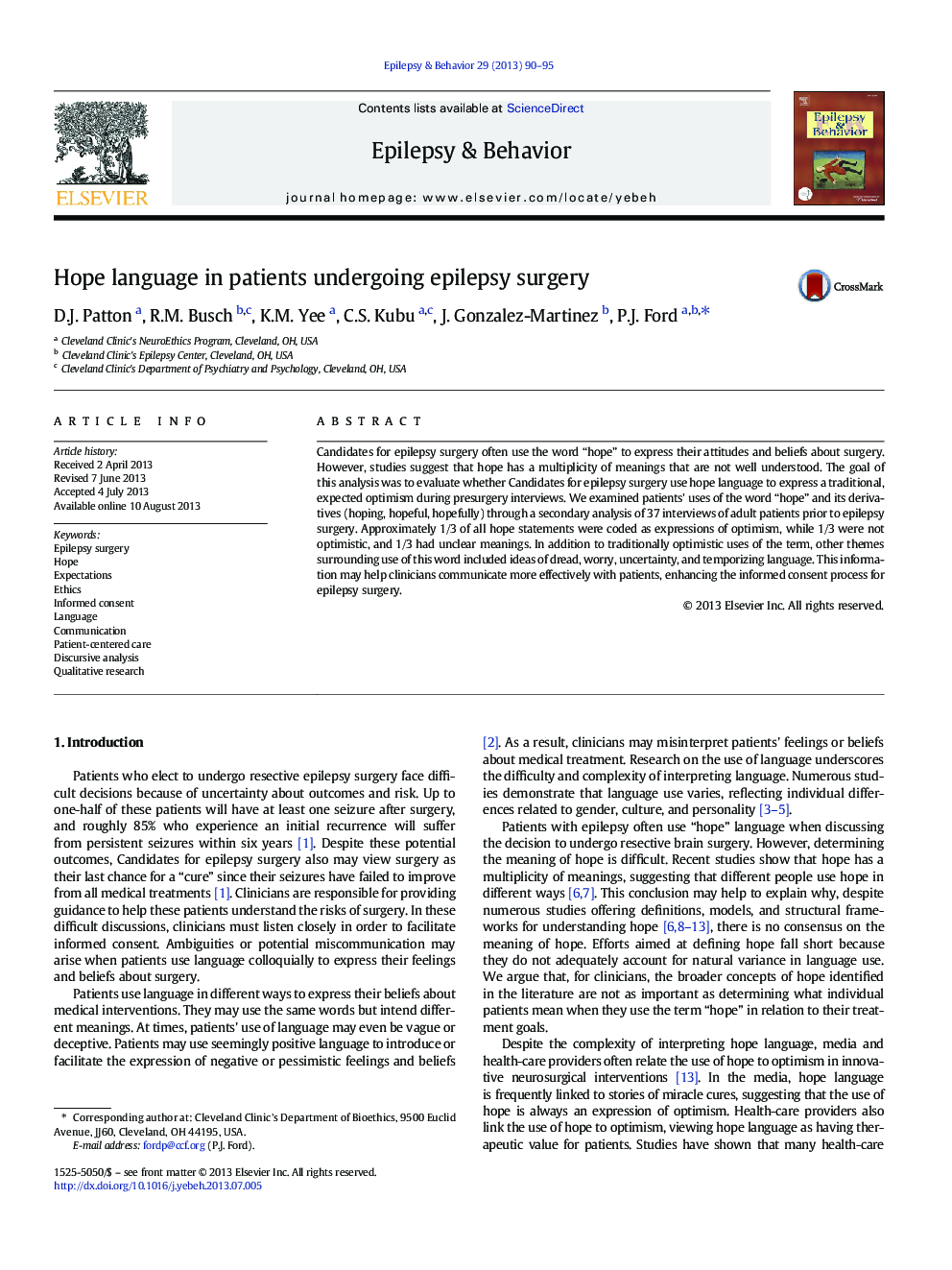| کد مقاله | کد نشریه | سال انتشار | مقاله انگلیسی | نسخه تمام متن |
|---|---|---|---|---|
| 6013069 | 1185909 | 2013 | 6 صفحه PDF | دانلود رایگان |
- In health care, language of hope is often thought to represent optimism.
- Hope language was analyzed in presurgery interviews of adult patients.
- Patients used “hope” to express a range of feelings from optimism to pessimism.
- Uses of hope language are varied, particularly in patients facing significant risk.
- Clinicians must clarify hope language to obtain proper surgical informed consent.
Candidates for epilepsy surgery often use the word “hope” to express their attitudes and beliefs about surgery. However, studies suggest that hope has a multiplicity of meanings that are not well understood. The goal of this analysis was to evaluate whether Candidates for epilepsy surgery use hope language to express a traditional, expected optimism during presurgery interviews. We examined patients' uses of the word “hope” and its derivatives (hoping, hopeful, hopefully) through a secondary analysis of 37 interviews of adult patients prior to epilepsy surgery. Approximately 1/3 of all hope statements were coded as expressions of optimism, while 1/3 were not optimistic, and 1/3 had unclear meanings. In addition to traditionally optimistic uses of the term, other themes surrounding use of this word included ideas of dread, worry, uncertainty, and temporizing language. This information may help clinicians communicate more effectively with patients, enhancing the informed consent process for epilepsy surgery.
Journal: Epilepsy & Behavior - Volume 29, Issue 1, October 2013, Pages 90-95
